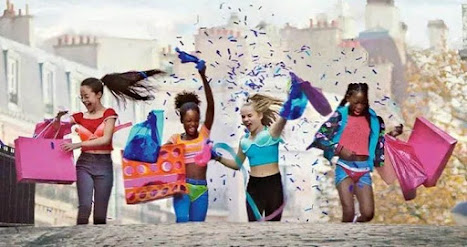Reimagining 'Gone with the Wind' in the 21st Century
Has the time finally come to end the romanticization of the Confederacy and slavery?
There has been newfound controversy surrounding Gone with the Wind after HBO Max, a new streaming platform to join a host of many streaming services, has received calls for the film to be pulled from its catalogue. This comes on the heels of Netflix receiving similar backlash when Tate Taylor's 2011 adaptation of The Help began trending on the streaming platform during a time of racial unrest and social upheaval.
I never liked Gone with the Wind. It was one of those films that was spoken of in my household but never revered. When I was in the 8th grade I attempted to read the book, but was so offended by the language I couldn't bare to finish it. Upon reexamining the material as I got older, I realized it was one of the many examples of the issues I had with old Hollywood films. I saw it as a stain on cinematic history, up there with D.W. Griffith's The Birth of a Nation. I thought of it as a part of Hollywood's troubling history, which often cast black Americans in a sardonic light rooted in racist stereotypes.
I have only watched it all the way through once as it is always one of those films that are brought up time and time again around awards season. The main issue I had with it was the depiction of Hattie McDaniel as Mammy, flanked by Oscar Polk and Butterfly McQueen as Pork and Prissy respectively. All three characters are based on racist movie tropes who are used to support the main characters. They are all seen as the jovial help who have no misgivings with their position as slaves.
Why criticize it now? The film has always been marred by racist imagery as it is the backdrop of the Antebellum South on a Georgia plantation preceding the Civil War. I feel the time has come to end the romanticization of the Old South and the Confederacy, as well as the lust for slavery and days long gone. This is also around a time where a number of Confederate statues have been taken down in response to the current protests involving recent incidents of police killings. Gone with the Wind, along with films such as Way Down South and The Littlest Rebel, were indeed products of their time, but should be looked as a troubling part of cinematic history while being apart of films that we should learn from as to not go back to.
Despite this, there were some small triumphs that came out of this film. Hattie McDaniel became the first African American to receive an Academy Award ever in the Best Supporting Actress category in 1940 for her role as Mammy, although at the Atlanta film premiere, McDaniel was prohibited from attending because it was held at a whites only theater. During the Oscars ceremony, she wasn't even allowed to sit with her own castmates as she was made to sit at a segregated table in the Ambassador Hotel. In her historic speech, she stated that she was a "credit to her race" and that she would "hold [her win] as a beacon for anything that I may do in the future". Her role in fact was a beacon for black actors who came after her to show where one came from.
Hattie McDaniel during her Oscar win in 1940.
Throughout her career, McDaniel continued to play maids, to much controversy from her African American peers. Her explanation for doing so was "Why should I complain about making $700 a week playing a maid? If I didn't, I'd be making $7 a week being one." She also faced criticism from her peers for her lack of involvement in civil rights during her career and continuing to play servant roles. I can criticize her from an anachronistic point of view without seeing it from her perspective or attempting to walk in her shoes. Hattie McDaniel, along with other black actors of her era, took the roles that were afforded to them. They very seldom would be cast in roles that did not portray them as lazy, dim-witted, or violent. Had she not done so, doors would not have been opened for other black actors that succeeded her to do what she couldn't do.






Comments
Post a Comment